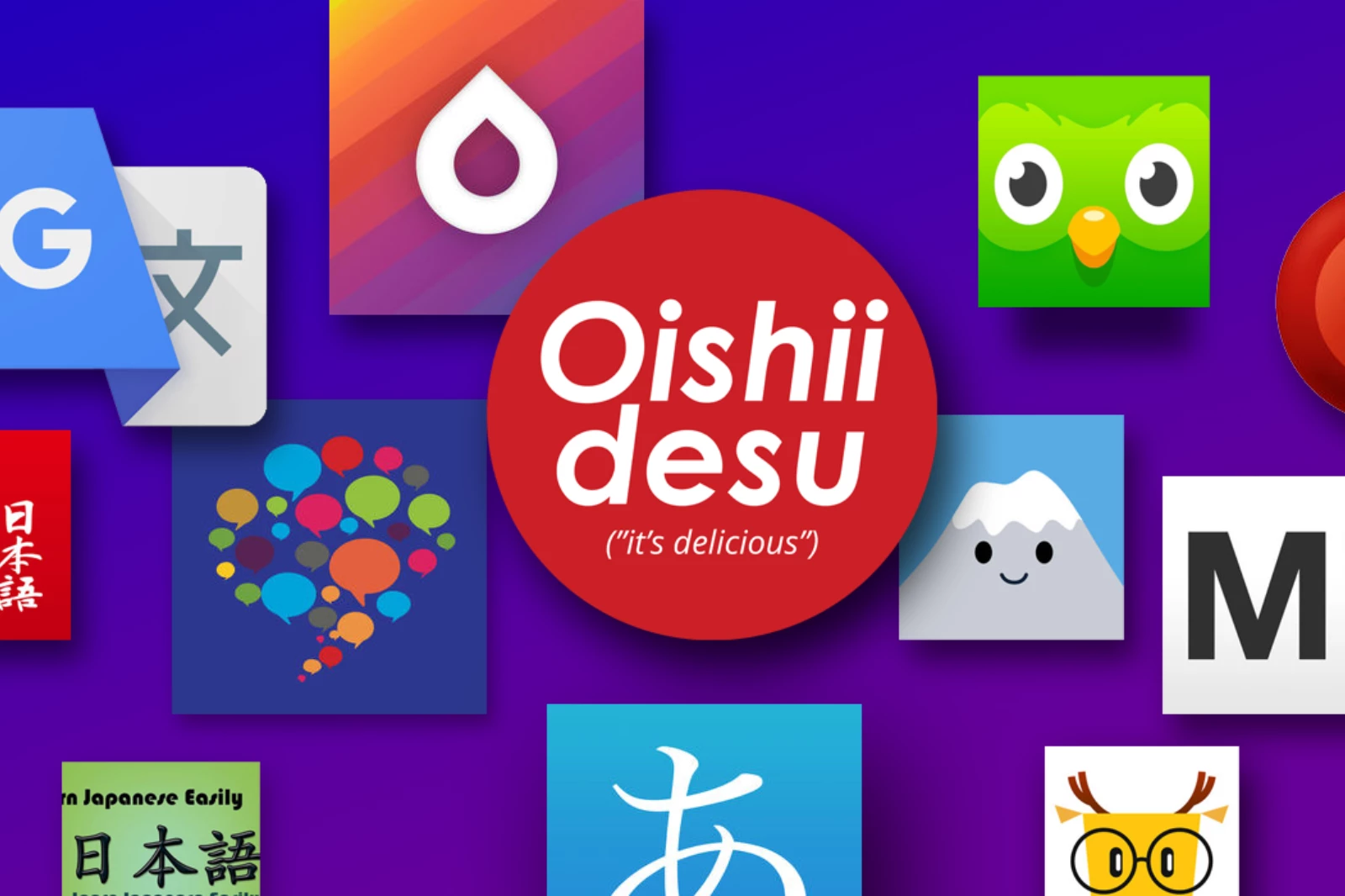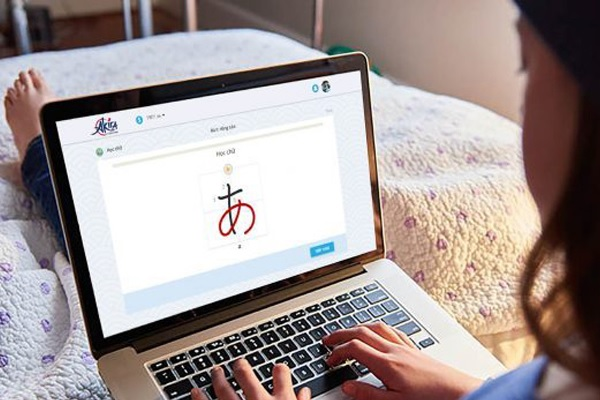- 1. Setting Clear Goals
- 2. Master the Japanese alphabet
- 3. Learn some key phrases
- 4. Use Japanese earning apps
- 5. Pay attention to flashcards
- 6. Practice your Japanese skills with language exchange partners
- 7. Immerse yourself in Japanese media
- 8. Diversify your practice methods
- 9. Learn from your mistakes
If you're wondering how to learn Japanese words fast or how to learn Japanese language fast, this article offers effective strategies, useful apps, and tips to help you speed up your learning process. Discover the best methods to master Japanese vocabulary and improve your language skills quickly!
1. Setting Clear Goals
Setting clear goals is the foundation for learning any language quickly. Without specific objectives, it’s easy to lose focus and motivation. Research shows that learners with well-defined goals are more likely to stay consistent and retain what they’ve learned over time.
Why goals matter: Studies from the American Educational Research Journal suggest that goal-setting improves motivation, accountability, and learning outcomes.
How to set goals: Start with short-term and long-term objectives. For example:
- Short-term goal: Learn 20 new words per week.
- Long-term goal: Hold a 10-minute conversation in Japanese within 6 months.
Break larger goals into smaller tasks to track progress and maintain motivation. A clear roadmap will keep you focused and help you measure your progress.

2. Master the Japanese alphabet
To learn Japanese quickly, you must first master the basics of its writing system: hiragana, katakana, and eventually kanji. These scripts are essential for reading and writing in Japanese and will form the backbone of your learning.
- Hiragana and Katakana: These phonetic scripts are ideal for beginners. Learning them will help you read and write basic Japanese.
- Kanji: As a logographic system, kanji can be intimidating, but focusing on the most commonly used characters will enhance your reading comprehension significantly.
Tips to Master the Alphabet:
- Use mnemonics to memorize character shapes and sounds.
- Write characters by hand to reinforce stroke order and memory.
- Practice daily with flashcards or apps like Anki.
Resources:
- Tofugu Guide to Hiragana and Katakana
- Kanji Practice
3. Learn some key phrases
Learning high-frequency phrases is one of the fastest ways to start using Japanese in everyday situations. By focusing on practical expressions, you’ll quickly build confidence and develop conversational skills.
Start Simple: Learn common greetings, questions, and polite phrases such as:
- "こんにちは" (Konnichiwa) - Hello
- "ありがとう" (Arigatou) - Thank you
- "すみません" (Sumimasen) - Excuse me / Sorry
Expand Gradually: Move on to phrases for specific situations like ordering food, asking for directions, or introducing yourself.
According to Foreign Language Annals, focusing on practical phrases early on boosts confidence and retention, encouraging further practice. If you're eager to dive in, explore this guide to learn basic Japanese words, which is perfect for beginners.
4. Use Japanese earning apps
Mobile apps are a game-changer when it comes to learning languages quickly. They offer structured lessons, interactive exercises, and spaced repetition to ensure you retain what you learn
Recommended Apps:
- HeyJapan: Focuses on vocabulary and grammar with daily lessons.
- Duolingo: Great for beginners with gamified learning.
- LingoDeer: Offers in-depth grammar and structured lessons.
Tips for using apps:
- Set a daily goal (e.g., 10 minutes of practice).
- Use features like spaced repetition to review vocabulary effectively.
Apps are perfect for bite-sized learning sessions, which are proven to enhance retention and speed up language acquisition.

5. Pay attention to flashcards
Flashcards are a powerful tool for mastering vocabulary quickly. They engage active recall, which is scientifically proven to reinforce long-term memory.
How to use flashcards:
- Create physical cards or use apps like Anki or Quizlet.
- Focus on the Japanese word, its meaning, and pronunciation.
- Review cards daily using spaced repetition.
A study in Psychological Science confirms that spaced repetition leads to better retention and quicker recall of new words. Flashcards are a powerful tool to help you memorize vocabulary efficiently. If you're looking for a comprehensive resource, consider checking out the 10000 most common Japanese words PDF. It provides essential vocabulary that forms the foundation of daily conversations.
6. Practice your Japanese skills with language exchange partners
Speaking with native speakers is one of the most effective ways to improve your Japanese quickly. Real conversations help you internalize vocabulary, refine pronunciation, and understand cultural nuances.
Where to find language partners:
Tips for Success:
- Start with simple topics and expand to more complex conversations.
- Be open to corrections and feedback from your partner.
- Offer to teach your native language in exchange for help with Japanese.
Practicing with native speakers not only accelerates fluency but also makes the learning process enjoyable and authentic.
7. Immerse yourself in Japanese media
Immersion is a proven method for language acquisition. Surrounding yourself with Japanese in your daily life will accelerate your learning by exposing you to vocabulary, grammar, and pronunciation in context.
- What to watch:
- Anime: Popular shows like Naruto, Attack on Titan, or My Hero Academia.
- Japanese TV shows: Try reality shows or dramas on platforms like Netflix.
- Youtube: Find the best YouTube channels for learning Japanese in this article
- What to listen To:
- Podcasts:
- JapanesePod101
- Small Talk Japanese
- Podcasts:
- What to read:
- Manga or books in Japanese.
- News articles on NHK Easy News.
Tips: Watch anime or TV shows with Japanese subtitles to reinforce reading skills while improving listening comprehension.
8. Diversify your practice methods
Consistency and variety are key to effective learning. Mixing up your study methods keeps the process engaging and helps you retain knowledge across different areas.
Daily routine: Dedicate time every day for language practice.
Mix activities:
- Study vocabulary with flashcards.
- Watch Japanese media for listening practice.
- Write sentences or journal entries to improve writing skills.
Research from The International Review of Applied Linguistics shows that learners who diversify their study methods retain more vocabulary and gain a deeper understanding of the language.

9. Learn from your mistakes
Mistakes are an inevitable part of learning any language. Instead of fearing them, embrace them as opportunities for growth.
Track your errors: Keep a notebook to record mistakes and review them regularly.
Seek feedback: Ask teachers, language partners, or native speakers to correct you.
A study in The Journal of Language Learning found that learners who actively seek feedback improve faster and retain corrections more effectively.
In conclusion, learning Japanese can be simplified with practical strategies like setting clear goals, mastering key phrases, and using tools such as flashcards and apps. If you're wondering how to learn Japanese words fast, focus on consistency, regular practice, and the right resources. With determination and effective methods, you can make steady progress and enjoy mastering this fascinating language.








